
- Want a ticket worth up to $500 for free?
- Submit your answer by April 30th for a chance to win.
After spending 2 weeks volunteering in the magnificent Austrian Alps thanks to Worldpackers, I wanted to share my experience on the best Austrian mountains and how to get there.
10min
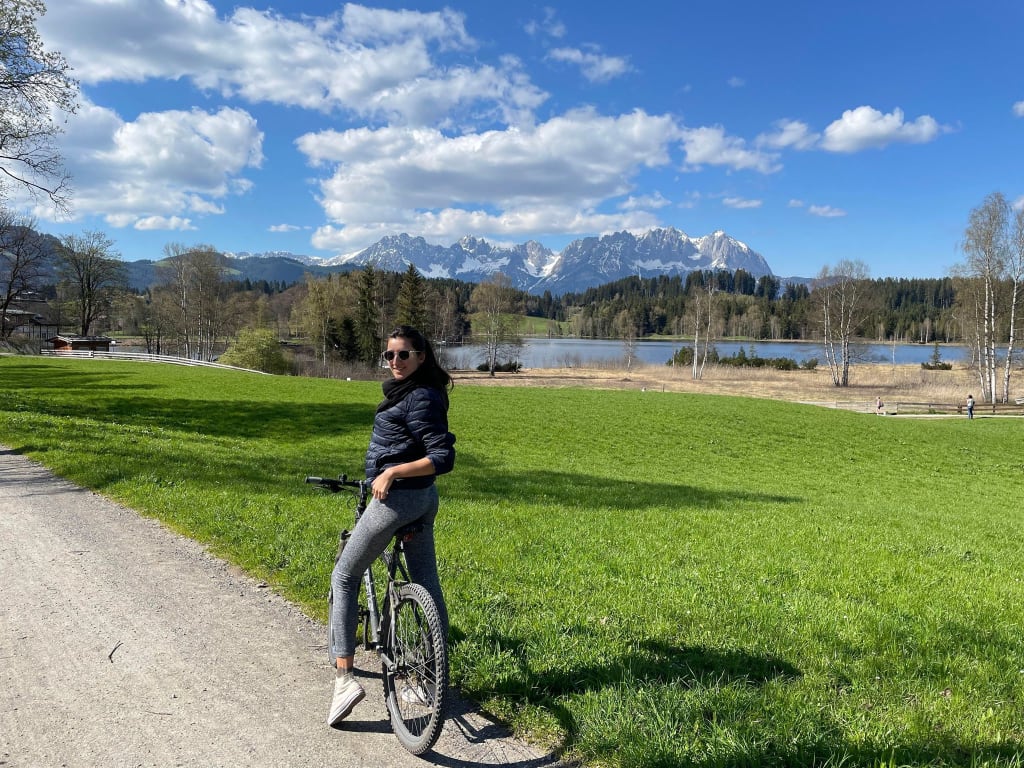
Austria has so much more to offer than just a beautiful capital: Vienna. Only a few hours away by train and you can be swept away by natural landscapes and a true breath of fresh air.
Let's explore the best of the Austrian mountains...
The Austrian Alps, aka The Central Eastern Alps, or just Central Alps, comprise the main chain of the Eastern Alps in Austria and the adjacent regions of Switzerland, Liechtenstein, Italy, and Slovenia. The highest mountain in the Austrian Central Alps is Grosslockner, peaking at around 3800 meters.
This chain of mountains has a variety of adventures that attract tourists from all over the world all year round.
In the winter, people enjoy the snow sports such as skiing, cross country skiing, and snowboarding (with the world’s toughest ski slope in Kitzbuhel: Streif) and in the summer, there are several activities to do from paragliding, hiking, and summer sledding, mountain biking, rock climbing, rafting and many more.
There are several different summit platforms classed as the "best ones" to visit so let's see a few of them by region:
Dachstein mountain stands at close to 3000 meters on the border of Upper Austria and Styria.
From the town of Ramsau am Dachstein you can take a cable car almost up to the top to watch the green pastures below, and right next to the mountain station is the Dachstein Sky Walk.
The Dachstein Suspension Bridge is another go-to place, in addition of the Sommerrodelbahn Rittisberg Coaster for something different (and cheap) to do!
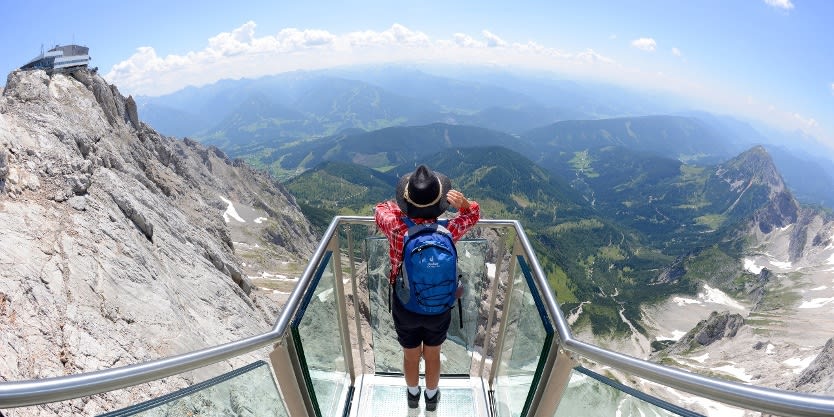
In the sunnier more southern part of Austria (Carinthia) is the corkscrew-like Pyramidenkogel which is the highest wooden viewing tower in the world (100m).
It costs about 15 € (adult price) to get up, but the best part is the slide to go down!
The region of Carinthia encompasses Austria's highest mountain in the Alps: Grossglockner and it is also well known for some of its lakes (Worthersee being Austria's biggest lake).
Travel tip: in this region, try the kasnudel: noodles filled with a mixture of potatoes, curd cheese, and fresh herbs (such as black spearmint) and served with hot butter.
Just outside Vienna (about an hour away) is the Hohe Wand Nature Park which has a fabulous Sky Walk where you can lounge around the observation deck and admire panoramic views. The entrance fee is only 2.50 € per adult and takes note that it closes at 19h (7 pm).
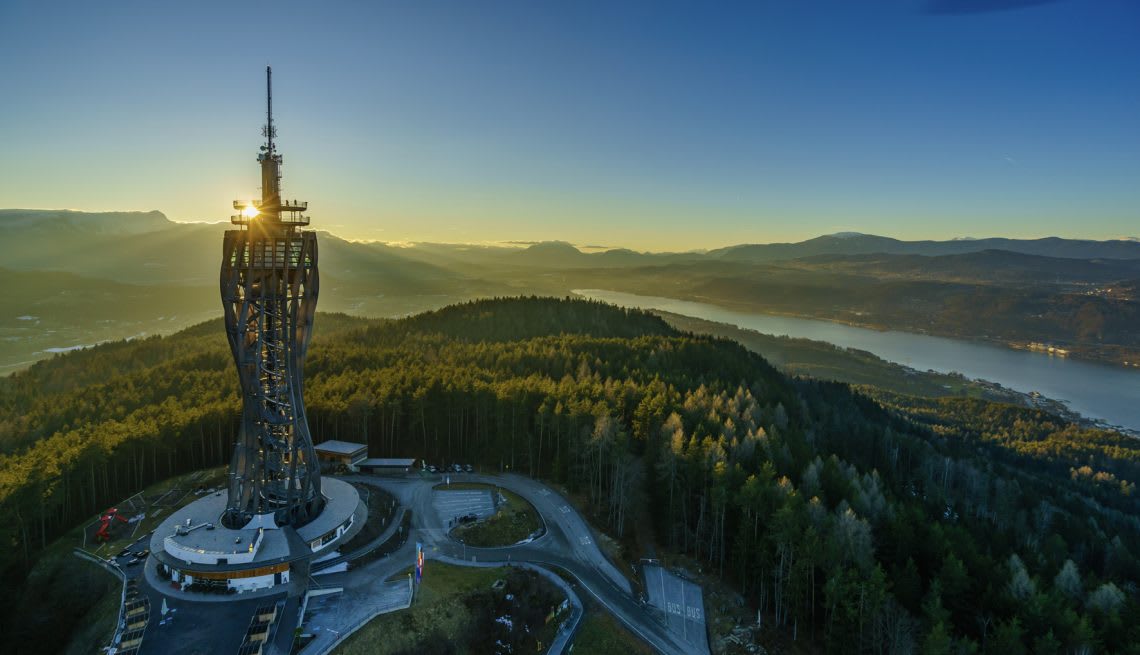
The Stubai Glacier has one of the most spectacular views. The top of Tyrol viewing platform is located at 3210 meters and built such that you feel suspended in the air! Worth the thrill!
The Oztal Valley of Tirol is home to the Big 3 (mountains). Cable cars will easily take you up to the viewpoints where you can see as far as the Zugspitze in the North (Germany's highest mountain) and the Italian Dolomites in the South.
A third must-go-to viewing platform is the Top Mountain Star in Obergurgl-Hochgurgl. There's a restaurant and bar at the top, making it a perfect destination for a memorable dining experience.
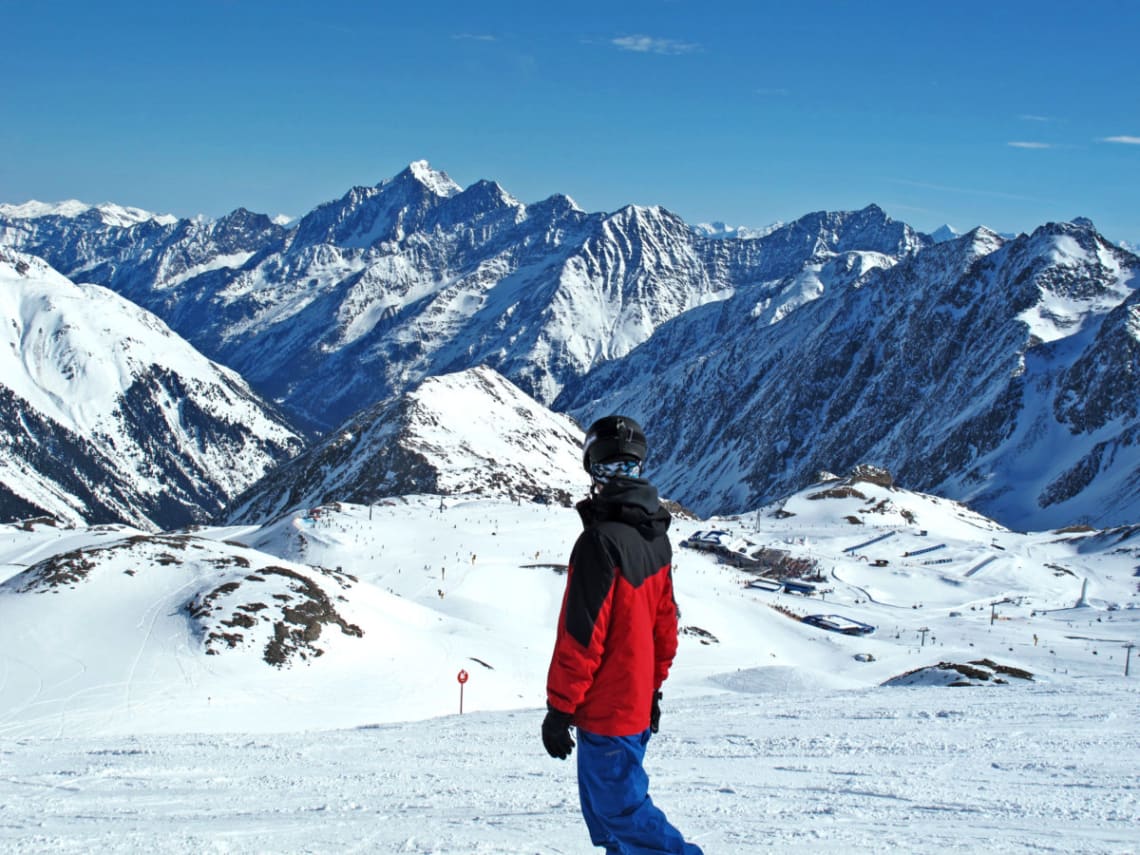
Only 1.5h away from Salzburg is located the Glocknerblick Viewing Platform in Bad Gastein. From there you will have a stunning view of Austria's highest mountain: the Grobglockner.
On the way there you'll also find Europe's highest suspension bridge- worth another pit stop!
A little further from Salzburg (3h by car) is the Kitzsteinhorn Glacier, which is a year-round world of snow and ice. Located at 3000 meters, this glacier has a lot of hikes to do or activities such as tobogganing in the summer.
Whether you travel in the winter or summer, or even in between seasons (like I did), you'll be sure to have lots to see and do in the area.
Although Austria is not terribly expensive, it's still the 24th most expensive country in the world (from a 2022 study) so your budget might determine what activities you do.
Thankfully, with Worldpackers volunteering opportunities in Austria, I was able to not spend a single cent on accommodation during my 2 weeks in the Austrian Alps! Keep on reading to find out more.
The main reason why I chose to visit Austria at this time of year (May) was simply because I had never been to this wonderful country and I wanted to tick it off my European bucket list.
I didn’t want to do the classic city trip to Vienna so I decided to check out the volunteering opportunities on Worldpackers, and see what adventure I could embark on.
With a variety of choices, I applied to a couple and decided to go with the first host that accepted me: Snowbunnys Backpackers Hostel.
I was in Alicante, Spain, and had to make my way to Kitzbuhel. The journey was a bit long, so I decided to do it over a couple of days.
I flew from Alicante to Vienna on Ryanair (for about $50 USD if not under), couchsurfed in Vienna for 1 night (spent nothing), then took the train the next day to Kitzbuhel. It wasn’t direct - I had to switch in Worgl (with only 5 min transfer time!) but the total train cost there only cost around $40 USD (I use the app Trainline but met many travelers who bought an Interrail pass).
The train ride was lovely, progressively changing from countryside scenery to pure mountains with snow at the summits, green grass, and fields of flowers.
Keep reading: How to find cheap flights to anywhere.
The hostel is located just about a 10 minute walk from Kitzbuhel train station. The town itself is quite small and cute… and very “rich”. It’s an expensive town that breathes wealth- but thankfully due to the volunteering, I didn’t spend a single cent and I'm not even exaggerating.
Dave, the Australian host, welcomed me and introduced me to the other volunteers that were there at the time: a 27-year-old girl from Chile and a 19-year-old girl from the UK.
Since there weren’t that many guests, I was able to have one of the double rooms (private) which was such a lovely surprise! Travel tip: always be open-minded with few expectations when volunteering, you never know what will come your way (positive or negative).
I settled into my cozy room that became my little nest for 2 weeks and that was the start of my experience!
My daily tasks were fairly simple and straightforward. First of all, there were no fixed hours or schedules so no need to put an alarm on in the morning.
Secondly, the most important thing that needed to be done was to take care of the animals (ducks, chickens, and rabbits). Keep them fed and clean, and Dave is happy. Being the organized type, I set two alarms on my phone as daily reminders for feeding time and bedtime. Feeding consisted of putting out their food trays, cutting fresh vegetables for the rabbits, and cleaning the wet area, and bedtime just consisted of turning off the lights and wishing them a good night!
Aside from that, volunteers helped around the hostel with basic maintenance tasks: making the beds, cleaning, tidying common areas, and helping Dave with chores and errands if needed.
This was the type of volunteer experience that was more “relaxed” than the usual volunteering - I didn’t consider there to be “off days” as I had a lot of free time and felt comfortable asking my host anything at any given moment.
This is one of the aspects of Worldpackers that I truly love - the fact that each volunteering experience is so different and that we get the opportunity to experience all different types of hosts, locations, and environments, and meet other like-minded travelers.
Dave took us on a few road trips: we went to Salzburg, Zell am See, went to some beautiful mountains in the area... They also have bikes that we can freely use which I highly recommend to go visit Schwarzsee (the lake, that’s only a 30 min walk from the hostel).
For me, 2 weeks in a location is just right - it’s enough to get into a routine, and also just right to leave. I like to be on the move and to constantly discover new things, but I know many other travelers that like to stay in a place for longer and that’s another beautiful aspect of Worldpackers: there are loads of opportunities that accept long-term volunteers.
Since most of the volunteering opportunities are in high demand due to the gorgeous locations, I’d recommend applying at least a couple of weeks in advance (ideally a month).
Sign up with Worldpackers (use discount code LEMONDEPACKERS for 20% off), complete your profile to the best of your ability, add an introductory video if possible, and start applying!
Then, all you need to do is search for the destination you want to visit and apply for the experience.
For Austria, there are actually quite a few experiences all around the country, and thanks to their national railway system OBB, it is quite easy to access most cities/towns. Trains are affordable, not particularly expensive, and you can find some good deals on Railjet.
1. In Kitzbuhel
There are two volunteer positions at Snowbunnys Backpacker Hostel. The minimum stay is 2 weeks and the maximum is 3 months. It says you have 1 free day on the application, but in reality, you have so much free time that you don't exactly need a day off.
Dave is also very flexible and will permit that if you wanted to explore the area over a couple of days. You also don't need to worry about the food there: Dave is a great cook and will also cover groceries expenses. This experience is really one-of-a-kind!
There's another volunteer position in the area which is in an organic minifarm. Tasks here are more centered around cleaning/housekeeping and gardening but in return, you get all meals as well, a private room, laundry, and 2 days off per week. They have great reviews and require a minimum stay of 2 weeks.
2. Branau am Inn District
Located North of Salzburg and literally just on the border of Germany, this unique experience is on a farm.
The tasks involve animal care as well as handyman work, with 2 days off per week, a private room, all meals included, bikes, and free laundry. They don't have reviews yet so why not be their first? 4 weeks in the area sounds like fun!
3. Nassereith
West of Innsbruck (so think west of Salzburg), closer to Liechtenstein, is a yoga retreat centre looking for volunteers. I was really keen on this one but didn't want to commit a minimum of 4 weeks.
Tasks here include helping out in the kitchen, cleaning, housekeeping with the possibility of some building work but in exchange you have all meals covered, access to yoga and meditation classes, 2 days off, laundry, and some other events.
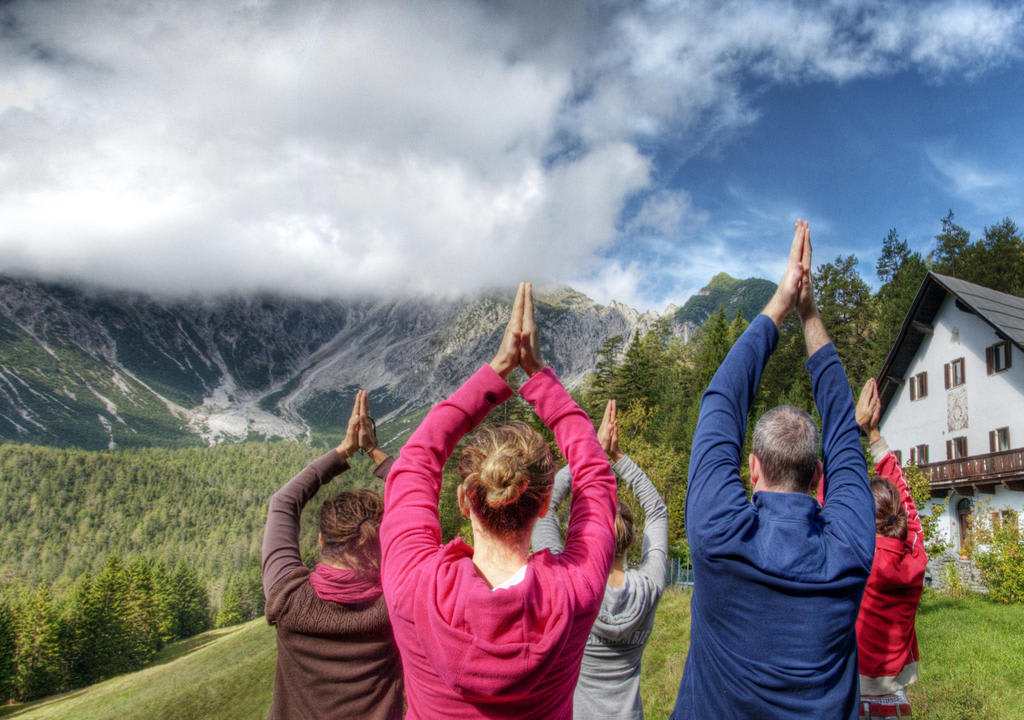
4. Bezirk Spittal an der Drau: Southern Austria, near Slovenia
There are 2 different opportunities here.
The first one is in a youth and family campsite, with a minimum requirement of 2 weeks. Tasks include cleaning, housekeeping, reception and gardening and in return you will not only get 2 days off per week, but every meal included, discounts on drinks, free laundry, usage of bikes and a certificate of completion.
The second one seems more calm but you need to be in good physical shape for it. It's located on a farm and main duties will be animal care (more specifically, treading sheep in the barn) as well as gardening. All meals are included here as well, in addition of a private room, 2 days off, free hiking tours and pick up.
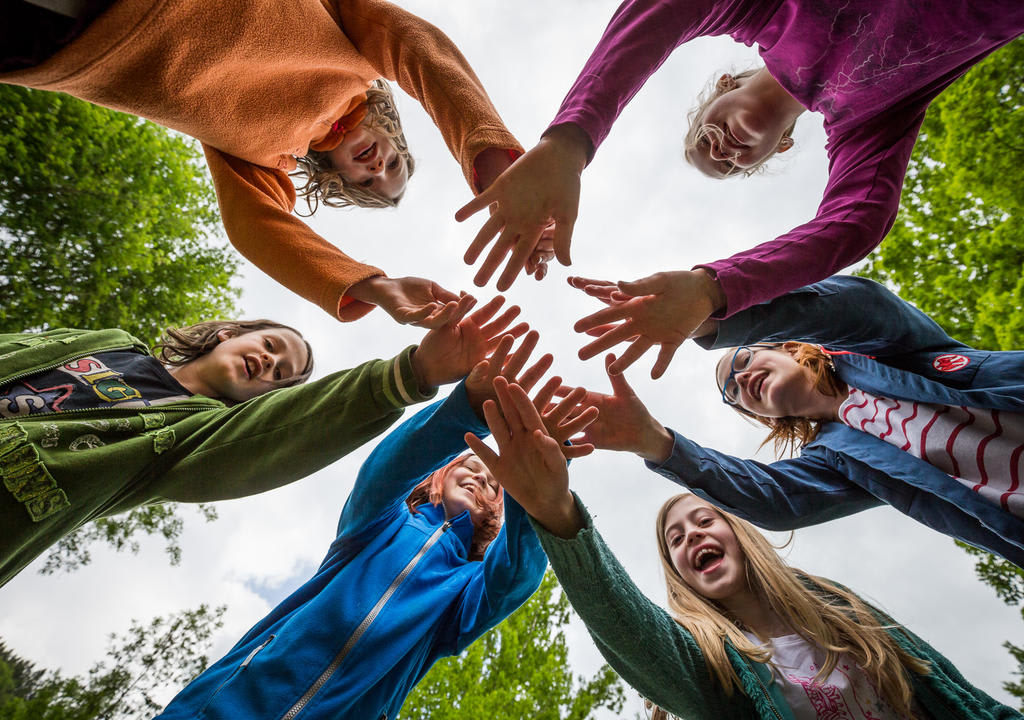
5. Vienna
If you're more into the city vibes, Worldpackers evidently has you covered as well.
This fun hostel asks for 20-25 hours per week of supporting and organizing evening events with the guests, helping to maintain the kitchen clean and tidy, and doing nightshifts in exchange of 3 days off per week, free laundry, breakfast, and discounts on restaurants, drinks, and tours! They have excellent reviews and require a minimum stay of 4 weeks.
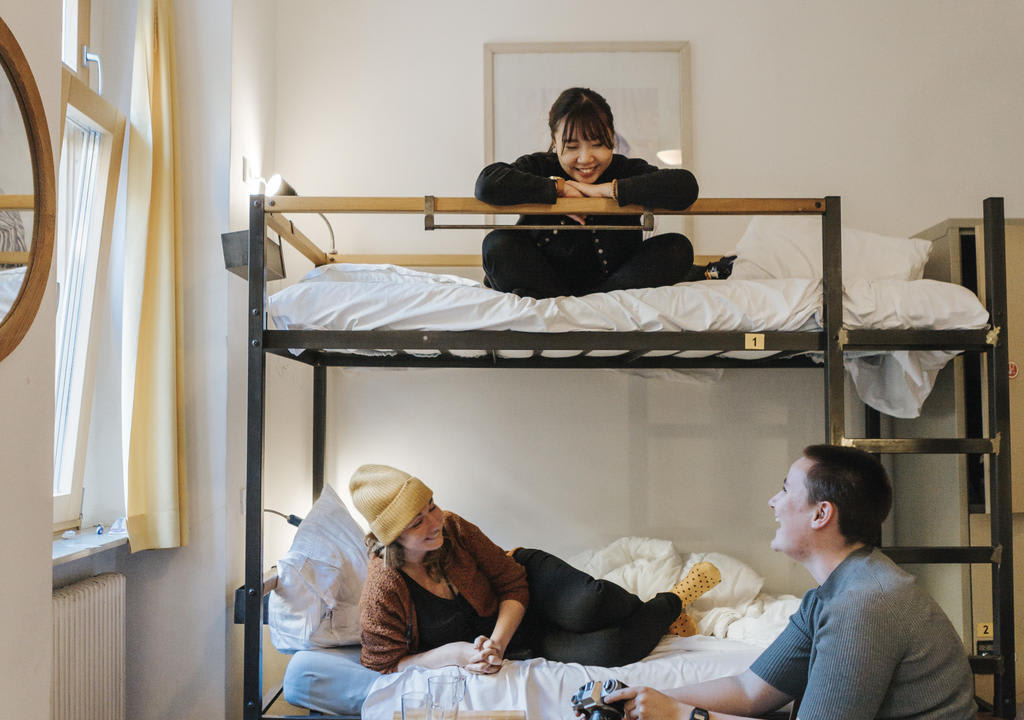
I'm sure you'll have a blast wherever you go in Austria; whether it's a city or a small town in the middle of the mountains.
However, here are some basic tips and tricks for when you prep for your trip to the Austrian mountains:
If you have any questions or want more information on the volunteering position I did in Kitzbuhel, or on anything else travel-related, feel free to write me here on Worldpackers.
If you like these tips, follow Worldpackers' social media to keep up with the news: we are on Instagram, Tiktok and YouTube!
Write here your questions and greetings to the author
Neculiti Ivan
Aug 21, 2023
Can be.
_ _ _ _ _ _ _ _ _ _ _ _ _ _
Nekultsy Ivan payload github